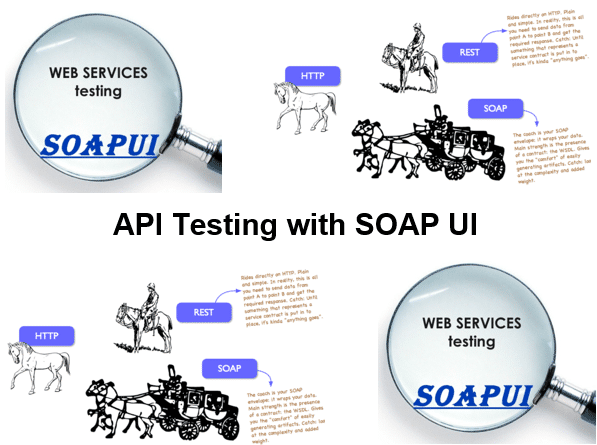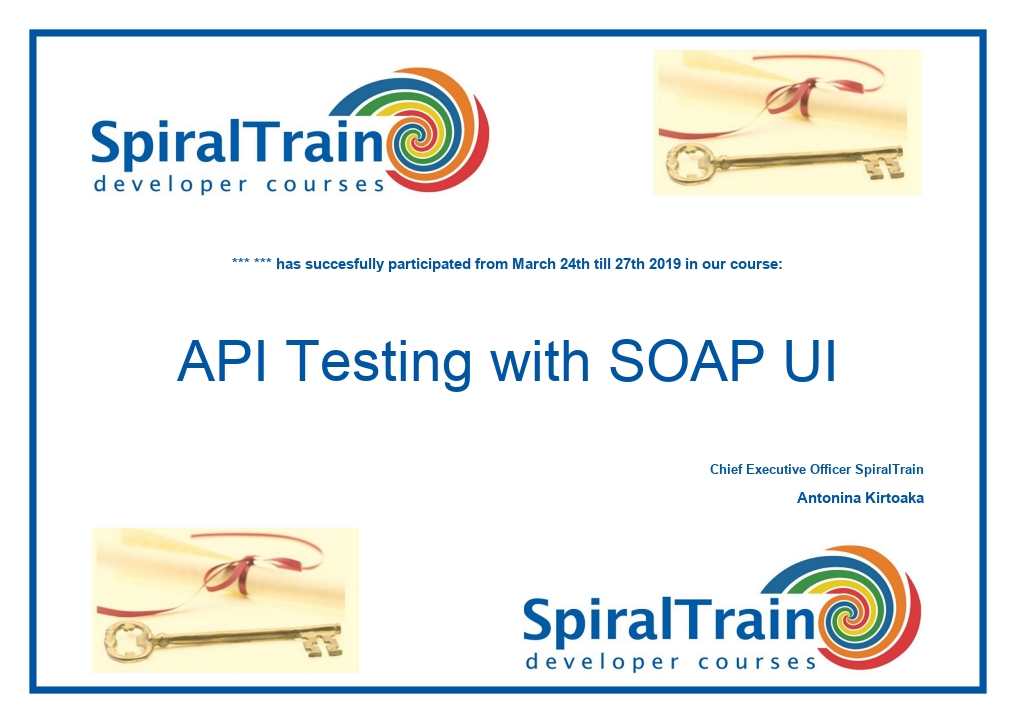-
Learning by doing
-
Trainers with practical experience
-
Classroom training
-
Detailed course material
-
Clear content description
-
Tailormade content possible
-
Training that proceeds
-
Small groups
The course SOAP UI API Testing from SpiralTrain discusses how to use the SOAP UI toolkit for testing Application Program Interfaces (API's) with REST, SOAP, GraphQL, microservices and other API protocols.
By using the open source SOAP UI toolkit testers and developers can use a simple graphical interface to set up API testing. SOAP UI covers the entire test spectrum from functional tests to security tests, load testing and mocking.
The course SOAP UI API Testing covers in detail the testing of REST services with the HTTP Protocol, JSON data, URL patterns and content negotiation. Attention is also paid to the testing of SOAP Services, the SOAP Protocol, XML data and XML Schema data validation. Also API exploration using REST clients such as Postman and the command line tool curl is discussed.
SOAP UI can easily be integrated into a Continuous Delivery pipeline and the automation of tests and the generation of test data is therefore on the course schedule as well. Finally the course API Testing with SOAP UI discusses how the Mocking of Services can be set up.
The course SOAP UI API Testing can be adapted on request and in consultation and can then pay attention to more specific forms of API testing.
The course SOAP UI API Testing is for testers and developers who want to use SOAP UI for testing API's and REST and SOAP Web Services.
Experience with testing is required. Experience with basic programming principles is recommended, but is not strictly necessary to participate in the course SOAP UI API Testing.
The theory is discussed on the basis of presentations. The concepts are explained with demos. The theory is interchanged with exercises. Course times are from 9:30 am to 16:30 pm.
After successful completion of the course, the participants receive an official certificate SOAP UI API Testing.

Module 1 : Intro API Testing |
Module 2 : REST Services |
Module 3 : SOAP Services |
|
What is API Testing? REST versus SOAP XML and JSON Environment Setup Available Tools SOAP UI Interface Postman in Depth REST Assured API cURL Using Swagger |
What is REST? HTTP Requests GET and DELETE POST and PUT HTTP Headers Payloads HTTP Response Status Codes Content Negotiation JSON Validation |
What is SOAP? SOAP Envelope SOAP Headers SOAP Body Attachments Exceptions SOAP Faults XML Schema Schema Data Types SOAP Validation |
Module 4 : API Exploration |
Module 5 : Test Automation |
Module 6 : Mocking Services |
|
Issue Requests Postman Collections Environment Variables Authentication Postman Through Proxy Viewing Traffic Health Checks Using Fuzzing cURL Requests in Postman |
Adhoc Automating Automatic with BASH Automating with CMD Using REST Assured API Code Coverage JsonPath XmlPath Creating Abstraction Layers Generating Random Data |
RestFull Mocking Prototyping Services Recording HTTP Traffic Mock Service Creation Mock From Scatch Mock Service Scripting Mock Handler Objects Using Files in Response Mock From Discovery |
